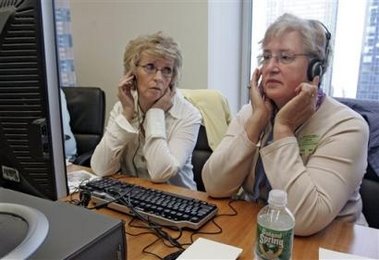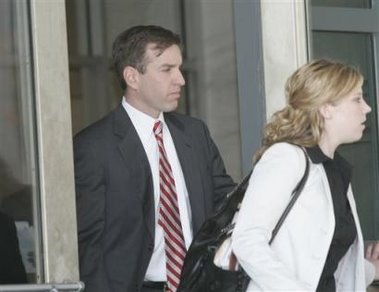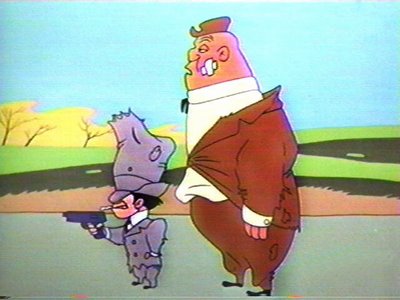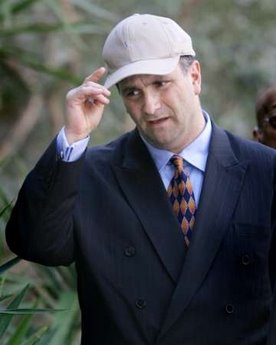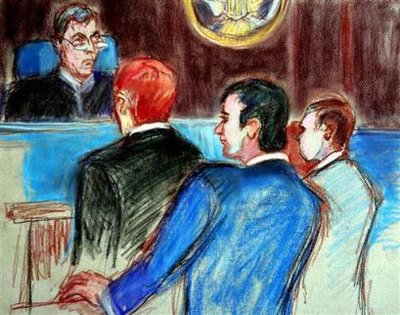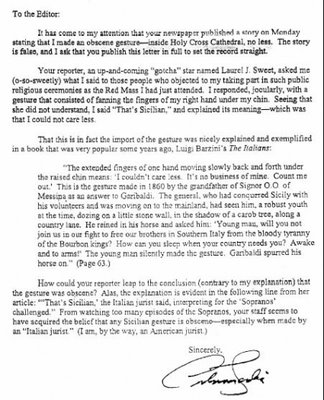Here's the link to the GOP commercial, which contains a transcript of the commercial.
And here is the link to the web video commercial.
I've watched this commercial four times now, and I'm so puzzled by it. Is this the Republican strategy for why the voters should choose the Republicans in maintaining control of Congress--if the Democrats can control of Congress, they're going to impeach the president? If that is it, then they don't have much of a strategy here--especially now when you've got the polls saying around 37 percent of the American public supports the president. It is incredulous.
Now I can guess as to who the Republicans are targeting these commercials to. These commercials are trying to shore up Bush's conservative base--especially the conservatives who have been disillusioned by the ongoing disaster in Iraq, and the administration's failure to resolve the problems in Iraq. These commercials have been designed to strike fear into the Republican base--if you don't keep us in control of Congress, the evil Democrats will impeach Bush. But I have to wonder if the Republican Party is also making a strategic blunder with this commercial? By trying to shift this debate towards the idea that the Democrats want to impeach Bush, the Republicans are giving an opportunity to the Democrats to list the scandals and laws that Bush has repeatedly broken. The Democrats can use the issue of the Republican impeachment commercials to channel the anger of their own base supporters towards the voting booths. And from the current political polls, there is a clear majority of people who do not support Bush.
Looking back at that RNC memo, sent to RNC chairman Ken Mehlman from Republican pollster Jan van Lohuizen, there is an interesting nugget of information that we should again look at. I want to look at the second and third points in this memo:
2. My read of the current environment is that our problem will be turnout. '06 could become an election like '82 or '84. In '82 Republicans showed up at relatively normal turnout rates, while Democrats, because they were angry, showed up at abnormally high turnout rates. In '94, Republican turnout was elevated, while Democratic turnout was depressed. We have every reason to believe '06 could become the inverse of '82. We don't see signs of a depressed Republican turnout yet, but we have every reason to believe Democrats will turn out in high numbers. Anything we do to depress turnout, by not running as a unified party for instance, could very well lead to serious consequences in November.
3. The President is seen universally as the face of the Republican Party. We are now brand W. Republicans. The following chart shows the extremely close correlation between the President'™s image and overall ratings of the party.
These two points actually complement each other. First, President Bush is certainly seen as the universal face of The Republican Party. The Republicans have aligned themselves completely with Bush's neoconservative foreign and domestic policies. The Republican-controlled Congress has become nothing more than a rubber-stamp for Bush. There is no opposition within the Republican Party. Since the war in Iraq has gotten worst, with American public worried that there is no defined parameters on what constitutes a victory in Iraq, or even an exit plan for pulling American troops out. The Iraq war has become President Bush's war, and the Republican Party's war. It is probably the single issue that's driving the president's poll numbers down.
This brings us to the second point. Van Lohuizen is worried that if the situation in Iraq remains the same or worsens, then these events are going to keep those Republican voters, who are dismayed at Bush's failures in Iraq, away from the voting booths. Von Lohuizen knows that the Democrats are angry at Bush, and that the Democrats may be able to channel that anger into the voting booths. His worry is that those angry Bush Republicans will stay home and depress voter turnout. And at this point with Bush's declining poll numbers, the Republican Party needs to turn out its party base, in order to maintain control of Congress. It is the reason for this commercial's existence--stand with us for '06, or we all sink.
